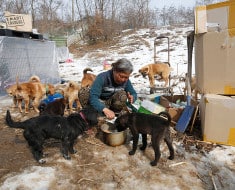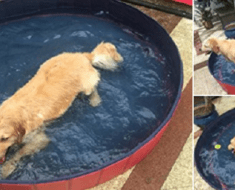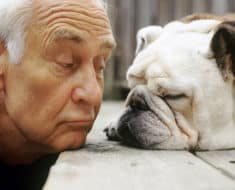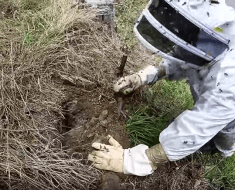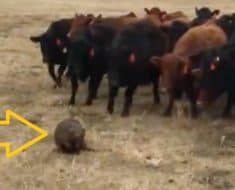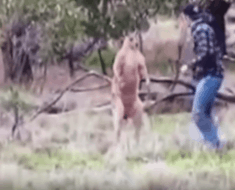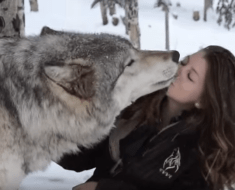
Aging is not a disease. However, even for dogs, age does take a toll on the body. Like senior humans, older dogs are weak and more susceptible to diseases. Diet can reduce the effects of old age on your dog. For that reason, you need to choose the food you give your senior dog carefully.
How do you tell your dog is a senior?
Small-size breeds, like the Boston Terrier and the French bulldog, live longer. Generally, such dogs are considered seniors at the age of 7. Large-size breeds, on the other hand, live shorter lives. At five years, they are considered seniors.
However, every individual dog ages differently depending on factors such as breed, genetics, weight, size, and health. The point is, your dog might be seven years and still be biologically young. A dog becomes a “senior” not because of age but signs of aging.
Signs of aging in dogs include:
- Loss of teeth, excessive drooling, and other dental issues.
- Sight problems
- Excessive weight loss or weight gain
- Skin problems such as lumps
Senior dogs have digestion issues
Age has minimal effect on the normal functioning of organs in the digestive system such as the intestines. What brings about digestion issues in senior dogs is the fact they are vulnerable to gut-related conditions such as pancreatitis and inflammatory bowel disease.
Therefore, a senior dog needs food that is easy to digest. For example, you could go for foods with high fiber content.

Source:https://yourdogisworthittoo.com/
Senior dogs require different nutrients
Your senior dog requires a change in nutrients for two main reasons:
- Change in activity level
- Loss of muscle mass
The change in activity level means your dog does not need as many calories. So, you might need to switch to foods with fewer calories.
Loss of muscle mass is the leading cause of weight loss. To make up for muscle mass, increase the amount of protein you give your dog.
Note that, different senior dogs require different nutrient adjustments to cater for their specific needs. As such, you should consult your vet to know what nutrients to add or reduce. Furthermore, there is no senior food profile recognized by the AAFCO (Association of American Feed Control Officials). Therefore, just because the dog food has the term “senior dog” on the packaging does not mean it has the nutrients suitable for older dogs.
Senior dogs have dental problems

Your senior dog has probably lost more than one tooth due to dental diseases or injury. So, she might have problems chewing. So, why not give her soft food? Fresh, raw, and canned foods are likely to be soft compared to kibble. Soft food will also minimize the chances of losing the already loose teeth.
Fortunately, there are options in the dog food market designed for dental disease. Such foods have ingredients that will help with dental problems, such as:
- Citric acid and sodium hexametaphosphate. These two compounds prevent the buildup of calculus, which is a hard rock material full of bacteria that cause cavities.
- Probiotics: These are healthy bacteria that promote oral health by the bacteria that cause cavities and bad breath.
Alternatively, you can get your dog regular dog food labeled “added moisture”. Such foods tend to be soft; thereby convenient for dogs with tooth loss.
Senior dogs may have arthritis
Like in humans, the risk of arthritis in dogs increases with age. Older dogs who are overweight are particularly likely to get arthritis.
Arthritis affects the joint. Therefore, to prevent it or reduce its symptoms, feed your dog food with joint supplements such as chondroitin, and glucosamine. These two compounds are known to be cartilage precursors.
To reduce inflammation, which is what causes pain in arthritis patients, increase the omega-3 fatty acids intake of your dog. Fish oil is an excellent source of omega-3.
Conclusion
Clearly, it is important to choose food for senior dogs carefully. The diet of your dog requires an adjustment of nutrients to cater for the changes that come with old age. For reviews on best dog food for senior dogs visit https://www.pupped.com/.









